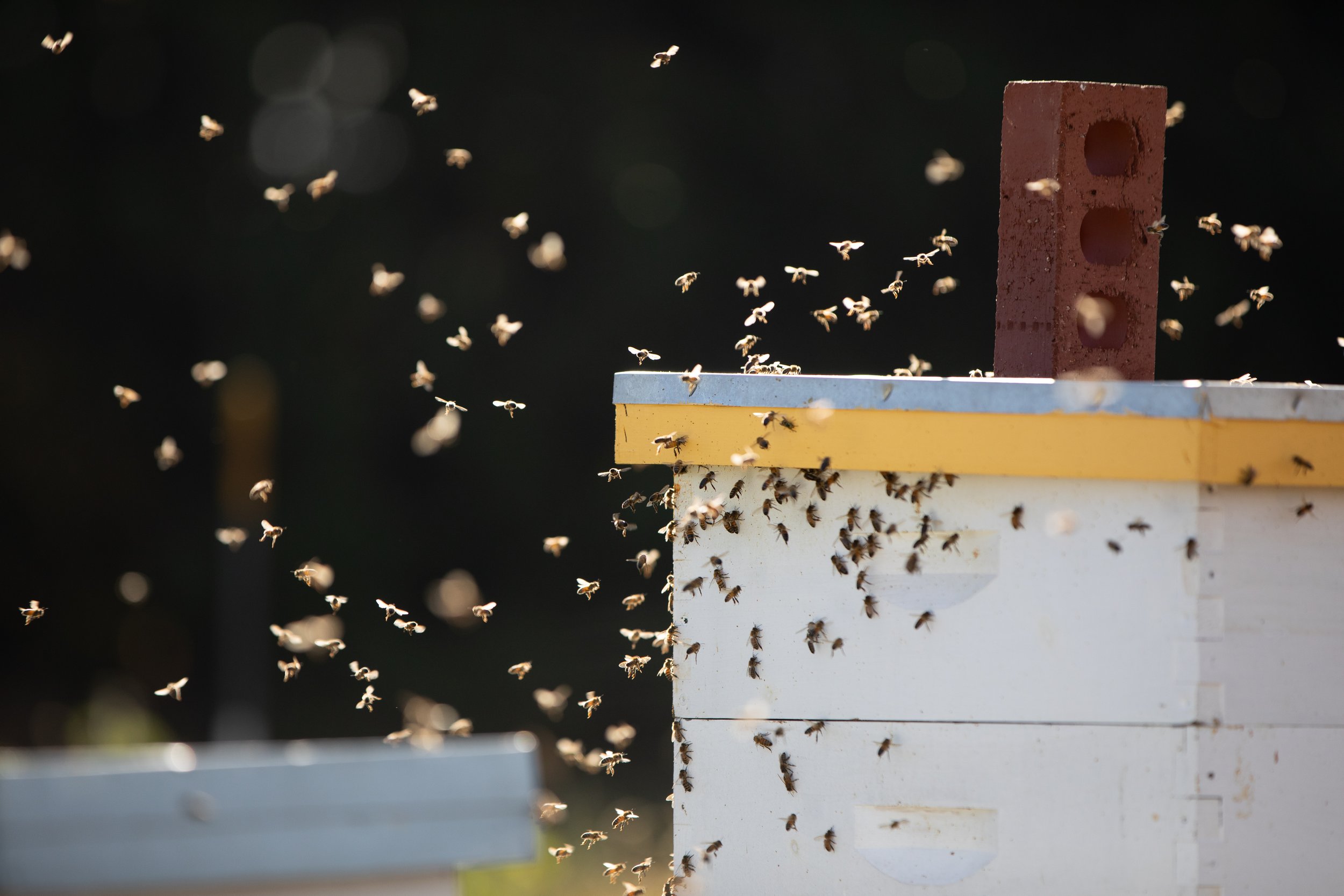What’s Happening at the Apiary for Pollinator Week?
Bees buzz around a hive at Eden Hall Campus. (Annie O’Neill)
Honey coffee, honey tea, honey cornbread, honey sales, and honey snacks are just a few items on the menu for Chatham University’s Pollinator Week.
Kicking off on Tuesday, April 9, Pollinator Week is a celebration of—and education on—the bees, wasps, and bats that pollinate plants, help produce fruits and vegetables, and support some of Earth’s most vital ecosystems.
Rebecca Nathan, MAFS ’22, the apiary manager at Eden Hall Campus, said the week kicks off with a contest, where students can design and vote on the new label for honey produced on Chatham’s farm campus.
“Hopefully we can make it an annual contest,” she said. “The prize is honey and bragging rights. Once we have honey from the next season, with their label on it, they’ll have some of that as well.”
The full schedule for Pollinator Week can be found on my.chatham.edu under the “Happenings” page.
Pollinator Week Highlights
Tuesday, April 9:
8:45 a.m.— 10 a.m.: Coffee, tea, and honey with Haileigh Stephens ’25 at the Esther Barrazone Center
12 p.m.— 1 p.m.: Honey community lunch in the Eden Hall Lodge living room
Wednesday, April 10:
11 a.m.— 1 p.m.: Honey sales, seed swapping, and beeswax wraps in the EBC
Thursday, April 11:
3:45 p.m. — 5 p.m.: Creating “bee hotels” for native pollinators in the EBC
Friday, April 12:
3 p.m. — 5 p.m.: Planting for pollinators at Orchard Hall
“This week, I am interested in bringing more awareness to different pollinators,” Nathan said, as well as giving students the opportunity to enjoy some bee activities.
For people who are interested in the apiary but may be afraid or allergic to bees, it’s an opportunity to learn without coming face-to-face with one.
“You don’t have to get into a hive to experience beekeeping,” said Nathan, who started working at the apiary while she was a Master of Arts in Food Studies student at Chatham.
She said the apiary, where the hives of Eden Hall are kept, is important to the campus’ mission of sustainability and education because of the variety of opportunities it provides for students hoping to learn more about beekeeping.
“It’s a lot harder to get this sustainable beekeeping practices education in other spaces,” she said.
Daily events for Pollinator Week continue through Friday, April 12.

